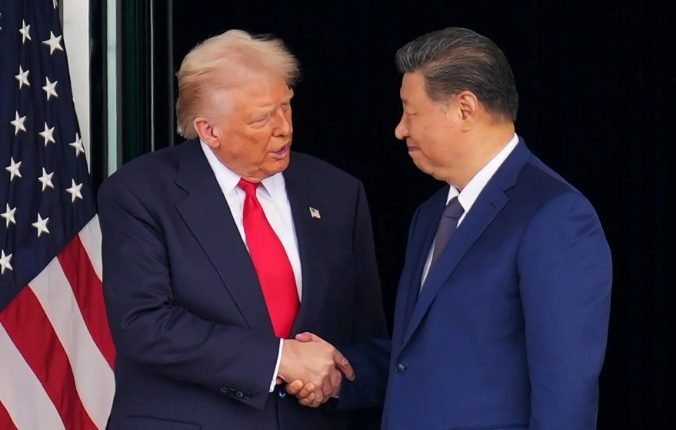Trump-Tandem Triumph: Tariffs Teeter Towards Truce with Xi
US President Donald Trump and Chinese President Xi Jinping meet in Busan for the first time since 2019, signaling a possible thaw in strained US–China ties and renewed hope for trade cooperation.
First Trump–Xi Meeting Since 2019
US President Donald Trump and Chinese President Xi Jinping met in Busan, South Korea, marking their first encounter since 2019. The meeting, held on the sidelines of the Asia-Pacific Economic Cooperation (APEC) Summit, is being seen as a potential turning point in strained bilateral ties between the world’s two largest economies.
Trump, known for his blunt diplomacy, was unusually warm in his remarks, calling Xi “a great leader of a great country.” He expressed optimism that the two nations could “build a little more consensus” on long-standing disputes, hinting at possible breakthroughs in trade and cooperation.
Trade Optimism Amid Historical Tensions
The discussion reportedly focused on key economic and trade issues, with Trump suggesting that a new trade agreement could be on the horizon. Analysts, however, remain cautious, noting that past optimism has often faded amid policy disagreements and tariff battles.
The US–China trade war, triggered by Trump’s earlier imposition of tariffs on Chinese goods, had led to Beijing halting imports of American soybeans — a move that devastated US farmers and disrupted global supply chains. Despite this tense history, the Busan meeting represents a moment of renewed dialogue and a possible step towards reconciliation.
Xi Jinping Responds with Warmth
In his response, President Xi Jinping echoed the positive tone, saying he was committed to strengthening ties and finding common ground.
“I am personally committed to doing what it takes to work with you in order for our two countries to achieve success together,” Xi said.
He added that China remained “firmly committed to stepping up the foundation of China–US relations.”
Observers noted that Xi’s conciliatory tone was intended to project stability at a time when both nations face economic slowdowns and increasing domestic pressures.
Global Markets Watch Cautiously
The outcome of the Trump–Xi parley could have far-reaching consequences. Economists say even a modest thaw could lift global investor sentiment, ease supply chain disruptions, and provide relief to exporters across Asia and Europe who have borne the brunt of tariff-related uncertainty.
Social media, meanwhile, buzzed with both amusement and hope — dubbing the encounter “the Busan Banter.” While some hailed it as a diplomatic breakthrough, others questioned whether this goodwill could translate into lasting policy changes.
The Road Ahead: Promise or Posturing?
As the world’s two most powerful economies inch towards rapprochement, questions remain about the sustainability of their commitments. Past attempts at rebuilding trust have faltered amid competing geopolitical ambitions in Asia, technology restrictions, and defense rivalries in the Indo-Pacific.
Still, analysts agree that the Busan meeting could mark the beginning of a more pragmatic phase in US–China relations — one that prioritizes economic stability over confrontation. Whether this warmth lasts, however, remains the trillion-dollar question.



Comments are closed.